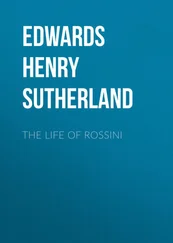Henry Bourne - The Life of Thomas, Lord Cochrane, Tenth Earl of Dundonald, Vol. II
Здесь есть возможность читать онлайн «Henry Bourne - The Life of Thomas, Lord Cochrane, Tenth Earl of Dundonald, Vol. II» — ознакомительный отрывок электронной книги совершенно бесплатно, а после прочтения отрывка купить полную версию. В некоторых случаях можно слушать аудио, скачать через торрент в формате fb2 и присутствует краткое содержание. Жанр: foreign_antique, foreign_prose, Биографии и Мемуары, на английском языке. Описание произведения, (предисловие) а так же отзывы посетителей доступны на портале библиотеки ЛибКат.
- Название:The Life of Thomas, Lord Cochrane, Tenth Earl of Dundonald, Vol. II
- Автор:
- Жанр:
- Год:неизвестен
- ISBN:нет данных
- Рейтинг книги:3 / 5. Голосов: 1
-
Избранное:Добавить в избранное
- Отзывы:
-
Ваша оценка:
- 60
- 1
- 2
- 3
- 4
- 5
The Life of Thomas, Lord Cochrane, Tenth Earl of Dundonald, Vol. II: краткое содержание, описание и аннотация
Предлагаем к чтению аннотацию, описание, краткое содержание или предисловие (зависит от того, что написал сам автор книги «The Life of Thomas, Lord Cochrane, Tenth Earl of Dundonald, Vol. II»). Если вы не нашли необходимую информацию о книге — напишите в комментариях, мы постараемся отыскать её.
The Life of Thomas, Lord Cochrane, Tenth Earl of Dundonald, Vol. II — читать онлайн ознакомительный отрывок
Ниже представлен текст книги, разбитый по страницам. Система сохранения места последней прочитанной страницы, позволяет с удобством читать онлайн бесплатно книгу «The Life of Thomas, Lord Cochrane, Tenth Earl of Dundonald, Vol. II», без необходимости каждый раз заново искать на чём Вы остановились. Поставьте закладку, и сможете в любой момент перейти на страницу, на которой закончили чтение.
Интервал:
Закладка:
The Life of Thomas, Lord Cochrane, Tenth Earl of Dundonald, Vol. II
CHAPTER XVII
LORD COCHRANE'S ARRIVAL IN GREECE. – HIS ACCOUNT OF HYDRA AND POROS. – THE CONGRATULATIONS OFFERED TO HIM. – VISITS FROM TOMBAZES, MAVROCORDATOS, AND MIAOULIS. – LETTERS FROM THE NATIONAL ASSEMBLY AND OTHER PUBLIC BODIES AND LEADING MEN. – THE DIVISIONS IN GREECE. – THE FRENCH OR MOREOT, AND ENGLISH OR PHANARIOT FACTIONS. – LORD COCHRANE'S RELATIONS WITH THEM. – THE VISIT OF KOLOKOTRONES AND OTHER DEPUTIES FROM THE NATIONAL ASSEMBLY. – LORD COCHRANE'S EFFORTS TO PROCURE UNANIMITY. – SIR RICHARD CHURCH. – LORD COCHRANE'S COMMISSION AS FIRST ADMIRAL. – THE NATIONAL ASSEMBLY AT TROEZENE. – THE EJECTION OF CAPODISTRIAS AS PRESIDENT. – LORD COCHRANE'S OATH-TAKING. – HIS ADVICE TO THE NATIONAL ASSEMBLY AND PROCLAMATION TO THE GREEKS.
Lord Cochrane entered the Egean Sea with his little schooner Unicorn and the French brig Sauveur on the 17th of March, 1827. In the afternoon he halted off the island of Hydra, there to leave the Greek deputy Orlando, who had accompanied him from Marseilles. "I was surprised," he said, "to observe that, except the open batteries near the town of Hydra, the whole coast of the island remained unprotected, although, in a smooth sea, a landing might be effected in almost every part of its circumference. The town of Hydra is built in an irregular manner on the fall of the mountain about the port, and presents a clean appearance, the houses being all whitewashed. There is not a tree on the island, though there are a few straggling bushes. There is scarcely any land capable of cultivation; but there are some vineyards on the south side and a few small gardens near the town. The port is small, the water deep, and the vessels made fast by hawsers to the shore. It is evident, that, if Greece obtains independence, this island, to which the inhabitants fled to enjoy that species of precarious liberty that depends on eluding the view of tyranny, must be abandoned. Even water is only to be had from tanks which are filled by the winter's rain."
From Hydra Lord Cochrane proceeded to Egina, making a circuit in order that he might have a view of Athens. "The Acropolis," he wrote, "with the whole scenery at sunset, was beautiful. Alas, what a change! what melancholy recollections crowd on the mind! There was the seat of science, of literature, and the arts. At this instant the barbarian Turk is actually demolishing, by the shells that now are flying through the air, the scanty remains of the once magnificent temples in the Acropolis."
He called at Egina on the 18th, in order to despatch letters, announcing his arrival, to the Governing Commission, as it was called, then located in the island, before proceeding to Poros, where he anchored on the morning of the 19th. "The main entrance," we further read in his journal, "is scarcely wide enough to work a ship in, if the wind is from the land. The water, however, is sufficiently deep close to the shore; and the port, when you have entered through this narrow channel, is one of the finest in the world. There is another entrance towards the south, but it is shallow and crooked, and consequently used only by small vessels. The town of Poros consists of a number of irregularly-built houses on the side of a hill, and merits the appellation of picturesque. There are remains of temples on the island, and the stone is yet to be seen on which Demosthenes is said to have been sitting when he was recalled by Antipater to Athens, and in consequence of which recall he took poison and died."
No sooner was the joyful intelligence conveyed to the inhabitants that Lord Cochrane, the long-expected deliverer of Greece, had actually arrived, than all the leading men who happened to be in Poros at the time hurried on board the Unicorn to welcome their champion and to give personal assurance of their devotion to him. The first to arrive was Jakomaki Tombazes, who was now acting with Dr. Gosse as superintendent of marine affairs, having surrendered the chief command of the fleet into the hands of Andreas Miaoulis. Miaoulis himself soon followed, and with him Alexander Mavrocordatos and many others. "Prince Mavrocordatos," wrote Lord Cochrane's secretary, Mr. George Cochrane, "was a short, stout, well-built man, of very dark complexion, with black eyes, an oval face expressing great intelligence, and his hair very long, hanging upon his shoulders. He was dressed in the European style, and wore on his head a little cloth cap. He also habitually wore spectacles. His manners indicated a man perfectly accustomed to the society of persons of rank. He immediately entered into familiar conversation with Lord Cochrane in the French language. He carried his pipe with him, which he continually smoked. Miaoulis was dressed in the Hydriot fashion; but, of course, as became a primate of the island, his attire was of a description much superior to that of his poorer fellow-countrymen. 1 1 "These men," says the same authority, "generally speaking, from their complexions, evinced that they had been mariners all their lives, the sun having well tanned them. They wore small red caps, from which their hair flowed wildly down their shoulders. On the upper lip they wore very long mustachios, which the older ones were continually curling, and bringing out the point. They wore trousers of blue cotton, and a jacket; and by the immense capacity of the former, I should suppose they must have contained at least twelve yards. This was gathered into plaits round the waist, and only descended to the knees, which were left open. The hinder part presented a most singular appearance. It hung down almost trailing upon the ground in a huge bag, which kept moving backwards and forwards in a ludicrous manner at every motion of the body. They wore shoes, but no stockings; and their legs were as dark as their countenances, and covered with hair. Round their waist they wore a large red sash in several folds. Their jacket was similar to a waistcoat, with sleeves, and ornamented with small buttons from the wrist to the elbow, and the same on the bosom." – "Wanderings in Greece."
His countenance was open and dignified, and so calm that it appeared like a rock which nothing could move. Not that it had any character of sternness in it; on the contrary, it possessed a placidity, blended with firmness, which was anything but forbidding. The moment Miaoulis came on deck, he cordially shook hands with Lord Cochrane, and a broken conversation commenced between them in Spanish, Miaoulis speaking that language but imperfectly. At the period in question he commanded the Hellas frigate. He knew perfectly well that Lord Cochrane's arrival would take the command out of his hands. Nevertheless, he evinced not the least jealousy, but was one of the first to offer his services under Lord Cochrane. 'I know my countrymen,' he said, 'and that I can be of service to your lordship on board the frigate. I will therefore sail under your command.' Such an offer was not to be refused, and he was requested to remain on board. Miaoulis informed Lord Cochrane that the hope of Greece rested in the Hellas , and in the quondam merchant brigs belonging to private individuals in the islands of Hydra, Spetzas, Poros, and Egina, amounting to about two hundred and fifty. These vessels had been armed as men-of-war; some had been turned into fireships, and it was the latter that struck so much terror into the Turks, several Turkish vessels of the line and frigates having been destroyed under the guidance of the brave Kanaris, a native of the ill-fated island of Psara."
The compliments and congratulations offered in person to Lord Cochrane immediately after his anchoring off Poros were followed by compliments and congratulations yet more profuse conveyed to him in writing by all classes and from all quarters.
Читать дальшеИнтервал:
Закладка:
Похожие книги на «The Life of Thomas, Lord Cochrane, Tenth Earl of Dundonald, Vol. II»
Представляем Вашему вниманию похожие книги на «The Life of Thomas, Lord Cochrane, Tenth Earl of Dundonald, Vol. II» списком для выбора. Мы отобрали схожую по названию и смыслу литературу в надежде предоставить читателям больше вариантов отыскать новые, интересные, ещё непрочитанные произведения.
Обсуждение, отзывы о книге «The Life of Thomas, Lord Cochrane, Tenth Earl of Dundonald, Vol. II» и просто собственные мнения читателей. Оставьте ваши комментарии, напишите, что Вы думаете о произведении, его смысле или главных героях. Укажите что конкретно понравилось, а что нет, и почему Вы так считаете.












